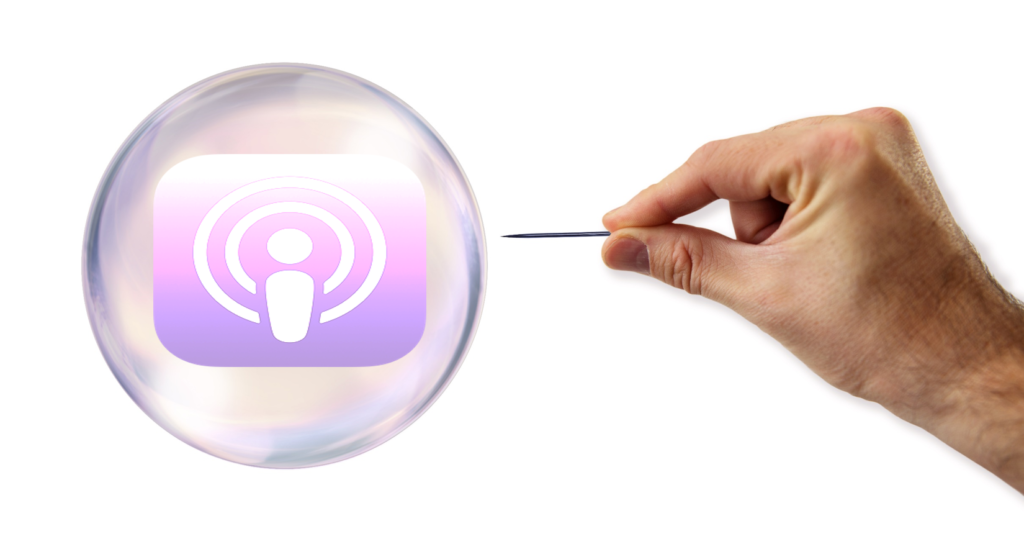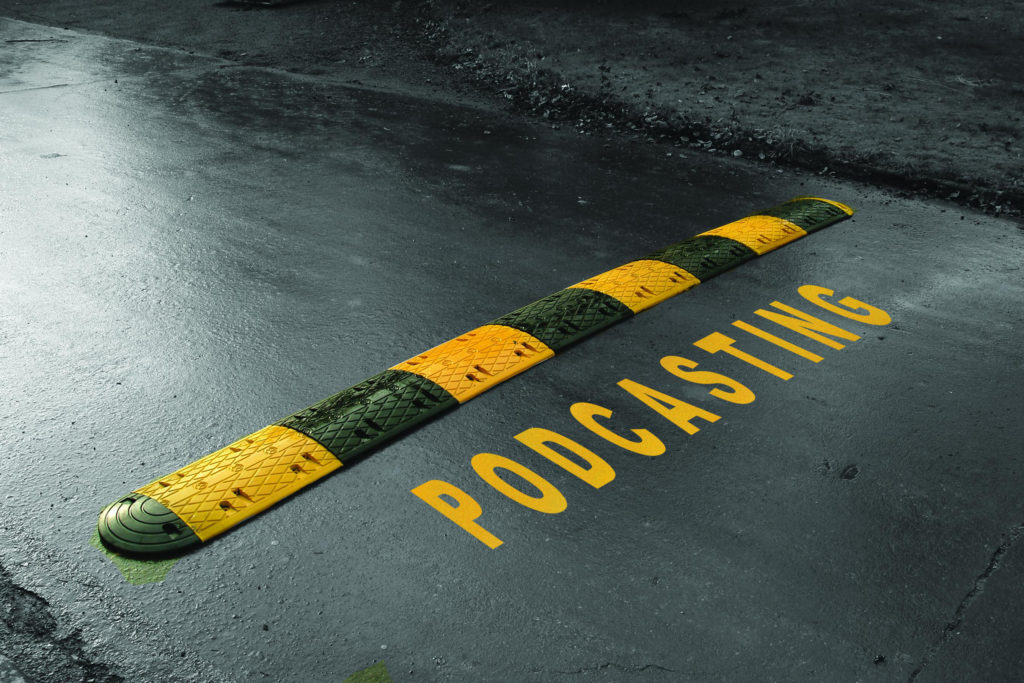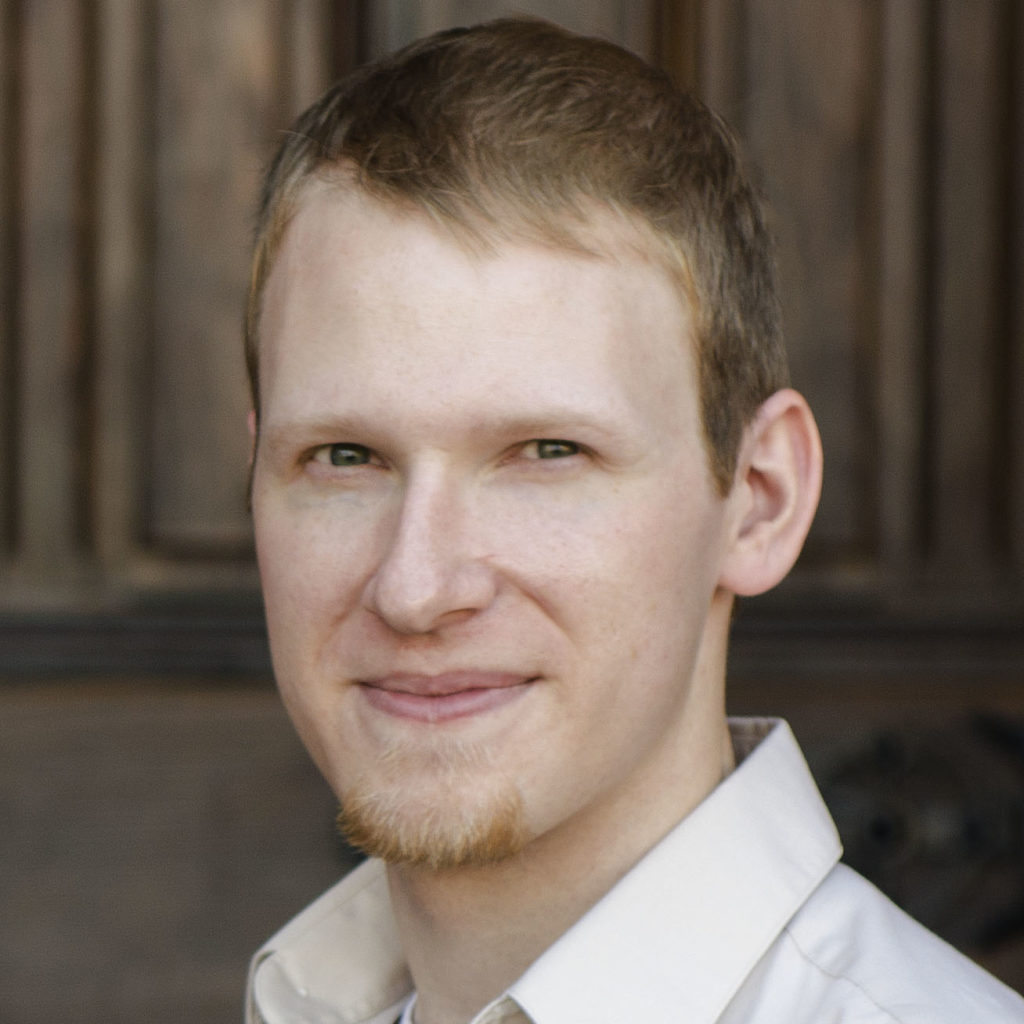
Now don’t get me wrong.
I’m a dyed-in-the-wool believer that podcasting is a “thing,” is a platform that is steadily growing, is an important piece of the audio renaissance, and is highly addictive – among those who have discovered it.
But as we’ve discussed in earlier posts, there are barriers to podcasting’s reach, born out of a lack of understanding about the platform, along with technical impediments that stunt its growth.
Here at CES this week, podcasters discussed a syndrome they referred to as “Peak Content Problem” – where there’s so much on-demand audio, it’s become difficult for many consumers to wade through it all.
 And then there’s the problem of discovery, exacerbated by the deluge of podcasts, made easier to produce by hardware and software that’s so inexpensive and basic that the barrier of entry has dissolved.
And then there’s the problem of discovery, exacerbated by the deluge of podcasts, made easier to produce by hardware and software that’s so inexpensive and basic that the barrier of entry has dissolved.
So, what’s the best path to determine whether the podcasting bubble is about to burst, whether podcasting is suffering from a slow leak, or whether podcasting is just taking a little breather?
Data highlighted in an article recently written by podcast industry expert, Daniel J. Lewis helps tell the story. In “What New Data Suggests About Podcast-Hosting Customers,” Daniel makes some interesting discoveries and observations
Consider the following data points I’ve cherry-picked from his post:
- There were 609,000 podcasts in Apple Podcasts as of November 2018 (likely to surpass 630,000 this month). That stat alone frames part of the problem, and the discovery dilemma that many podcasters believe is real.
- Free podcast hosting companies may sport big numbers of shows, but very few active podcasts. This suggests that “free” does not necessarily translate to commitment levels.
- Conversely, those who use premium hosting companies are far more likely to produce active podcasts.
- And even though podcasting is certainly a hot platform, hundreds of thousands of podcast producers are essentially considered “inactive,” releasing only a handful of episodes a year.
This data suggests that what’s known as “podfade” – podcasts that are launched, but don’t last – is perhaps a bigger problem than analysts even imagine.
And that squares with what we anecdotally see at Podcast Movement. There are a lot of avid podcasters out there, but many are “hobbyists,” rather than producers and publishers in it for the long haul.
The promise of podcasting – not unlike that of mobile apps a decade ago – is that a “gold strike” is possible. Many are hopeful their podcast concept will be the next “Serial,” downloaded and enjoyed by millions. Instead, too many podcasts fail to generate 100 downloads for a typical episode.
For perspective, I asked Daniel, an  award-winning podcaster who guides others on how to improve their on-demand audio efforts. He also walks the walk, hosting his own podcast – about podcasting – “The Audacity to Podcast.”
award-winning podcaster who guides others on how to improve their on-demand audio efforts. He also walks the walk, hosting his own podcast – about podcasting – “The Audacity to Podcast.”
I had a chance to ask him about these driving issues, and he was kind enough to help put podcasting in perspective as we enter the new year:
Fred Jacobs: What’s the message behind the data? Is it a shakeout? Or just settling?
Daniel J. Lewis: I think this data reflects general human behavior in other areas: when something is cheap and easy, people are less committed; but when it takes more investment, people stick with it. I think it shows both the desperate need for simpler tools, but also a need for more verifications (not complications) along the way.
We don’t want the podcasting industry to be like a teenager with their first credit card and no sense of responsibility, and we also don’t want to treat new podcasters like teenagers.
Perhaps the best thing podcasting-tool-makers can take from this data is the need to better educate and prepare their users so that almost anyone can start a podcast, and they’ll be educated enough to start it well and thus maintain it longer.
FJ: Why so much “podfade?” Do you get the sense it’s worse than ever?
DJL: “Podfading” is the term we usually use to describe a podcast that has slowly faded from existence. It seems to always be the unplanned consequence from a lack of action. (Whereas “retiring” a show is usually an intentional action with some planning.) This happens for a variety of reasons, mostly from the podcasters’ interests or availabilities waning.
But I think we need a new term to describe this new phenomenon. I suggest “podflash”: an initial jump into podcasting, but without much commitment, a quick end of further activity. It’s only a “flash in the pan.” It’s the seed sown on rocks in Jesus’s “Parable of the Sower” (Matthew 13, Mark 4, and Luke 8).”
I think “podflashing” is, indeed, worse than ever because the steps to start podcasting are becoming fewer and easier. And the easier something is to start, the more people will start without commitment. I really wonder how many people actually wanted their podcast attempts to be automatically published, as Anchor in particular does.
FJ: Do you get any sense that would-be podcast producers think this craft is easier than it really is?
DJL: Even before today’s tools made it so easy to get into podcasting, I would see a lot of podcasters quit or podfade because they discovered podcasting was harder than they expected.
But even though the tools are much better and easier, a successful podcaster still needs personal skills in planning, communication, collaboration, and commitment. Personal development can’t be done with a tool.
FJ: Many radio broadcasters are buying podcast companies OR investing In them. What does that suggest to you?
DJL: I like seeing radio broadcasters investing in the podcasting space. I think they could be recognizing that the radio audience is literally dying and podcasting is the next revolution for syndicated audio and video content.
As much as I love the new talent, investment, and attention broadcasters are finally bringing to podcasting, I also have deep concerns such broadcasters are trying to make podcasting (which is a decentralized, grassroots, from-the-bottom-up industry) function more like traditional media: centralized, controlled, from-the-top-down.
Daniel’s comments underscore why Jacobs Media has worked in partnership with Podcast Movement these past few years. It’s been obvious to us the rift between these two communities can be overcome, but it’s real.
That’s why our Broadcasters Meet Podcasters track contains sessions designed to bring both groups together – to explore ways to work together and benefit from each other’s expertise.
We will once again be partnered with the Podcast Movement team for their upcoming conference in Orlando, August 13-16, with keynotes, sessions, panels, and workshops designed for both broadcasters and podcasters.
More information and registration here.
Most broadcasters can’t just walk in a studio and become podcast pros. It requires much learning, strategic thinking, marketing, and commitment, as Daneil’s analysis suggests.
Some are learning this the hard way.
Thanks to Daniel J. Lewis and Seth Resler.
- I Read The (Local) News Today, Oh Boy! - April 15, 2025
- Radio, Now What? - April 14, 2025
- The Hazards Of Duke - April 11, 2025




Superb blog! Do you have any tips for aspiring writers? I’m planning to start my own site soon but I’m a little lost on everything.
Would you propose starting with a free platform like WordPress or go for a paid option? There are so many options out there
that I’m completely overwhelmed .. Any ideas? Thanks!